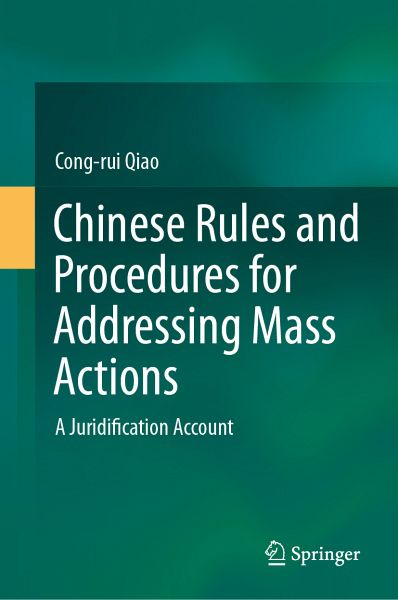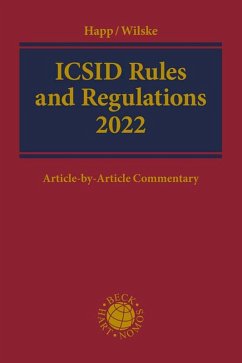
Chinese Rules and Procedures for Addressing Mass Actions (eBook, PDF)
A Juridification Account
Versandkostenfrei!
Sofort per Download lieferbar
128,95 €
inkl. MwSt.
Weitere Ausgaben:

PAYBACK Punkte
64 °P sammeln!
This book unravels the intricate tapestry of Chinese state-society and government-citizen interactions in both legal historical and contemporary contexts. Set against the backdrop of China's meteoric rise as a global economic and political powerhouse, it presents a comprehensive and nuanced exploration of China's governance norms and their transformative evolution in the modern and contemporary eras.The book analyses China's multifaceted governance landscape, including its profound influence on the dynamics of government-citizen interactions in contemporary China. By introducing the concept of...
This book unravels the intricate tapestry of Chinese state-society and government-citizen interactions in both legal historical and contemporary contexts. Set against the backdrop of China's meteoric rise as a global economic and political powerhouse, it presents a comprehensive and nuanced exploration of China's governance norms and their transformative evolution in the modern and contemporary eras.
The book analyses China's multifaceted governance landscape, including its profound influence on the dynamics of government-citizen interactions in contemporary China. By introducing the concept of "juridification", it demystifies the complexities of Chinese governance traditions and transitions. At its core, the book reveals how legislative, administrative and judicial authorities address the collective grievances of Chinese citizens. Through a combination of historical, legal and sociological analyses, it equips readers with an understanding of the formal and practical mechanisms used by Chinese authorities, spanning from the 1980s to the present, to address mass actions. In addition, the book assesses an underexplored aspect: the changing narratives and diverse perspectives found in news coverage of government responses to mass actions, shedding light on the socialisation of principles of public accountability and the safeguarding of civil rights in China.
The book is intended to make the topic accessible to both scholars and an interested global audience, helping them understand the Chinese legal governance model, its underlying rationale, recent developments and social implications.
The book analyses China's multifaceted governance landscape, including its profound influence on the dynamics of government-citizen interactions in contemporary China. By introducing the concept of "juridification", it demystifies the complexities of Chinese governance traditions and transitions. At its core, the book reveals how legislative, administrative and judicial authorities address the collective grievances of Chinese citizens. Through a combination of historical, legal and sociological analyses, it equips readers with an understanding of the formal and practical mechanisms used by Chinese authorities, spanning from the 1980s to the present, to address mass actions. In addition, the book assesses an underexplored aspect: the changing narratives and diverse perspectives found in news coverage of government responses to mass actions, shedding light on the socialisation of principles of public accountability and the safeguarding of civil rights in China.
The book is intended to make the topic accessible to both scholars and an interested global audience, helping them understand the Chinese legal governance model, its underlying rationale, recent developments and social implications.
Dieser Download kann aus rechtlichen Gründen nur mit Rechnungsadresse in A, B, BG, CY, CZ, D, DK, EW, E, FIN, F, GR, HR, H, IRL, I, LT, L, LR, M, NL, PL, P, R, S, SLO, SK ausgeliefert werden.












